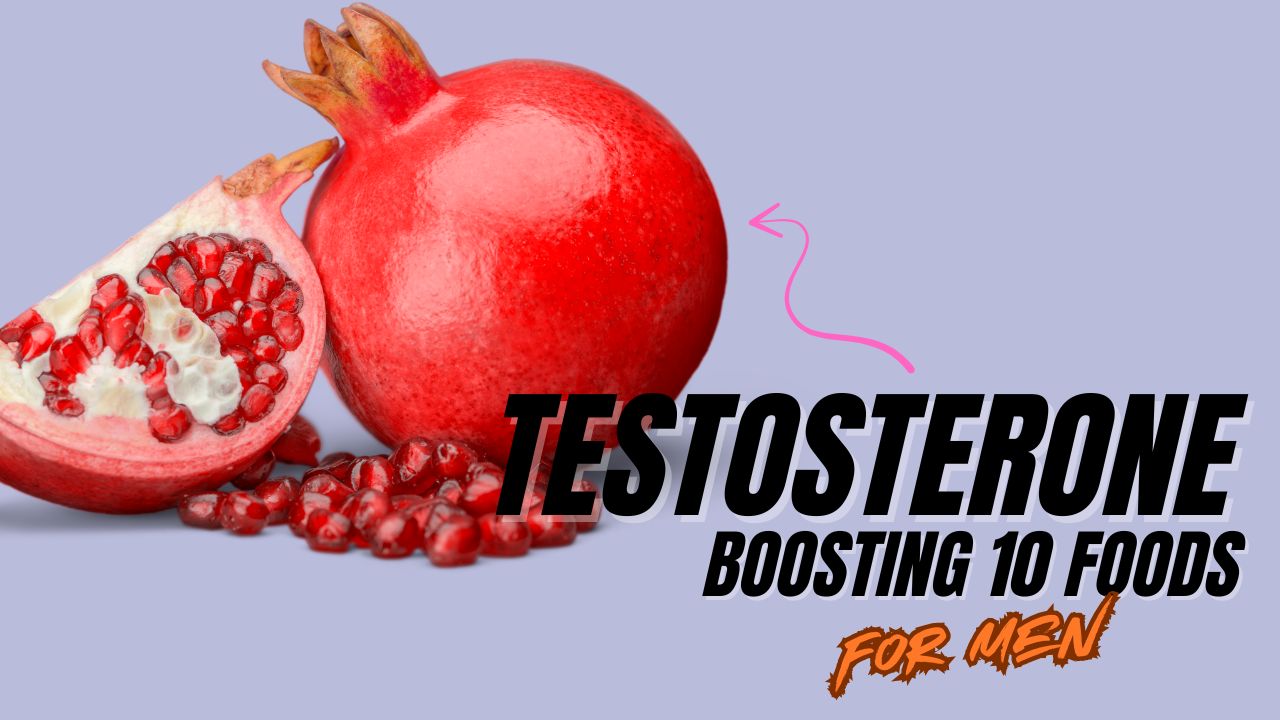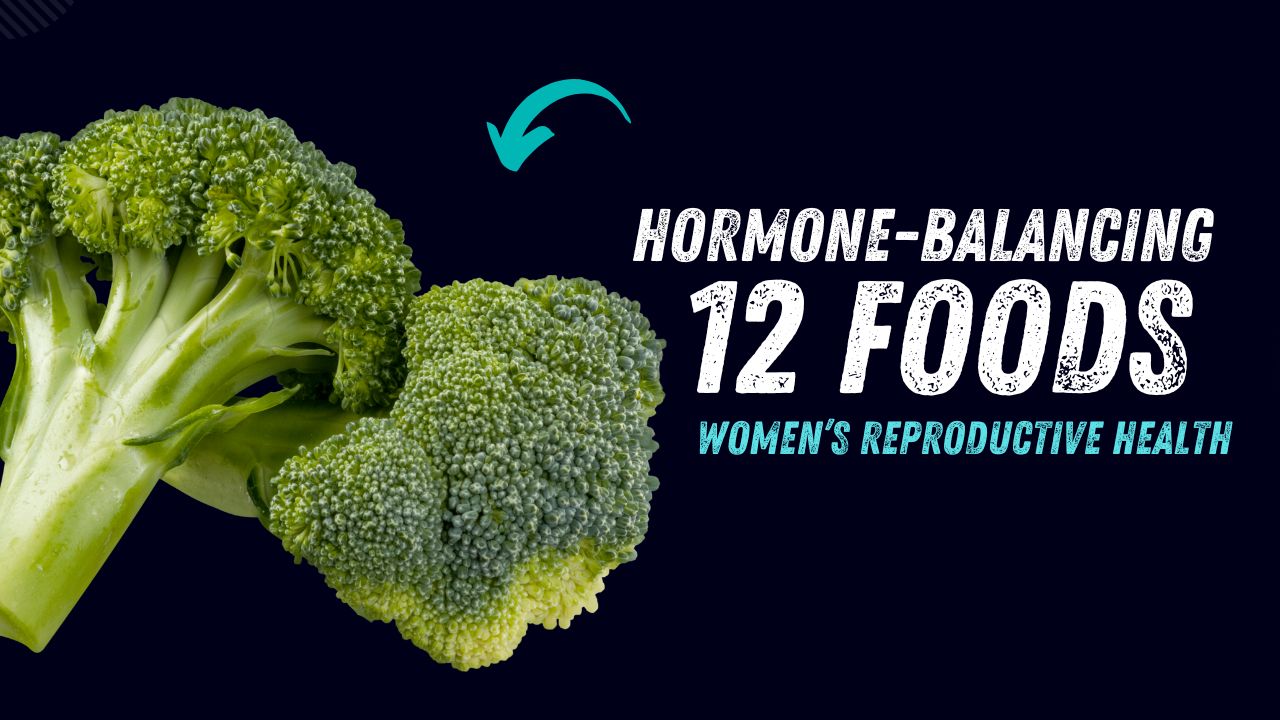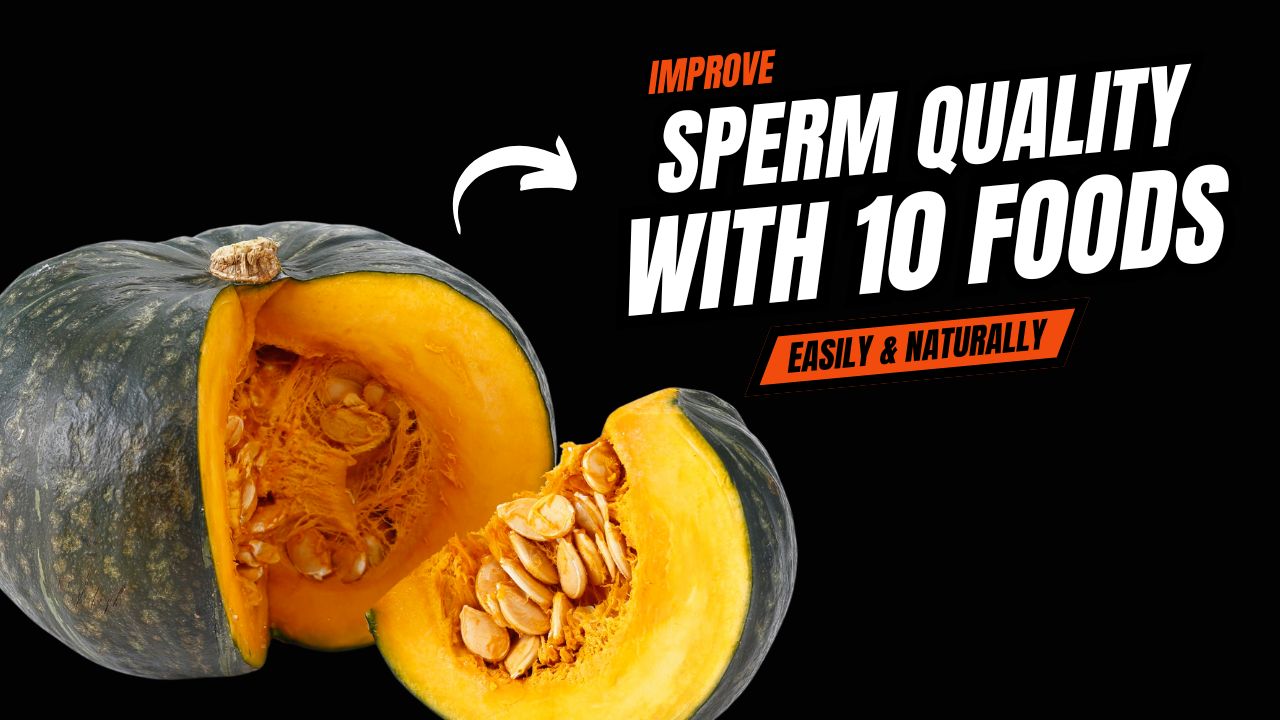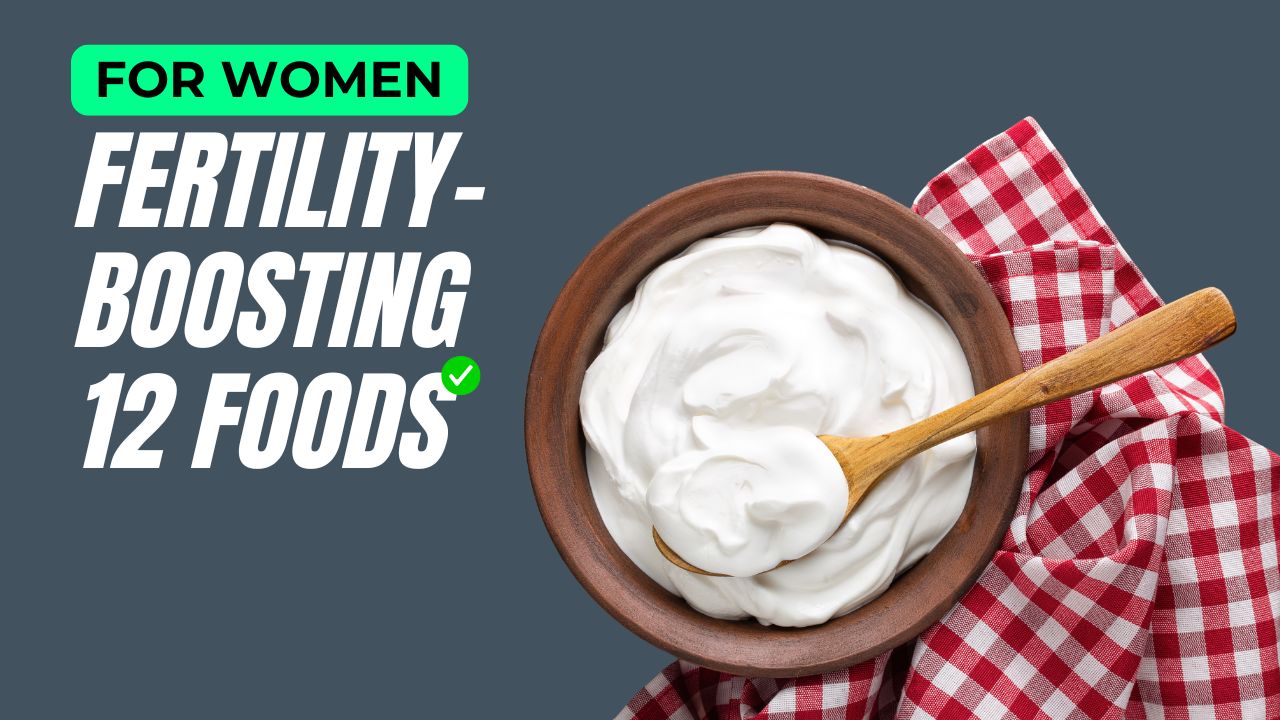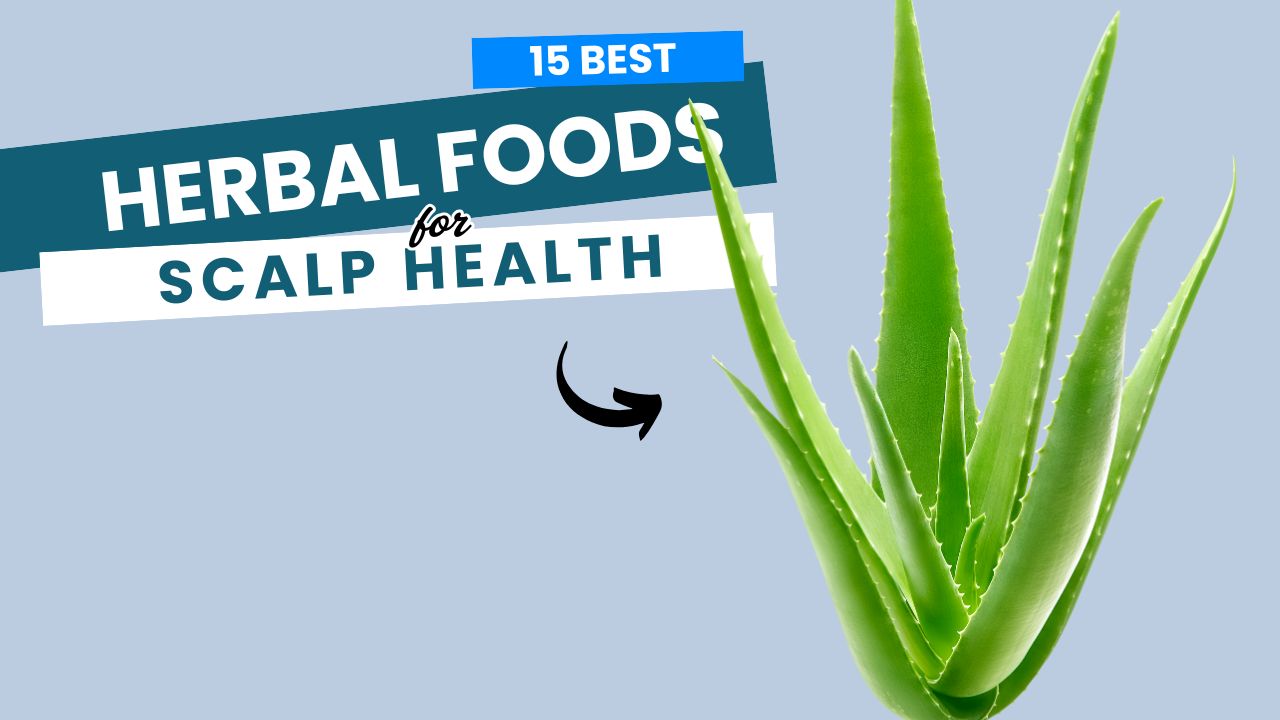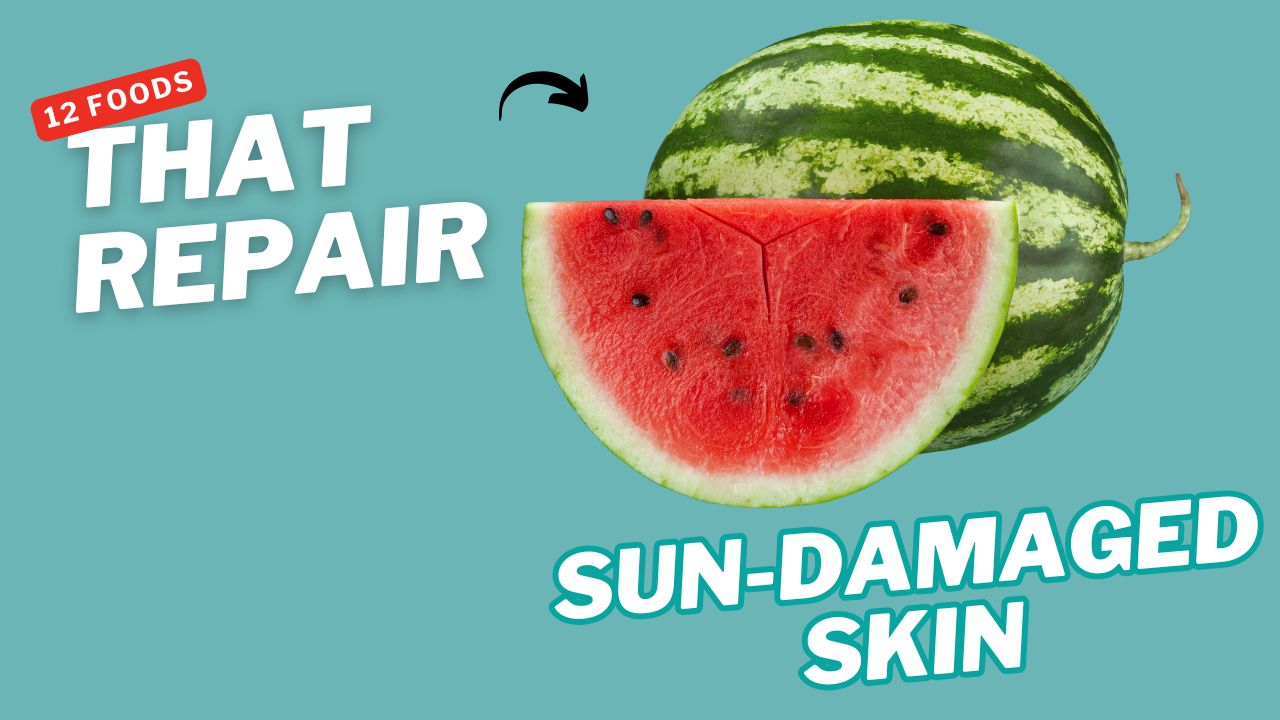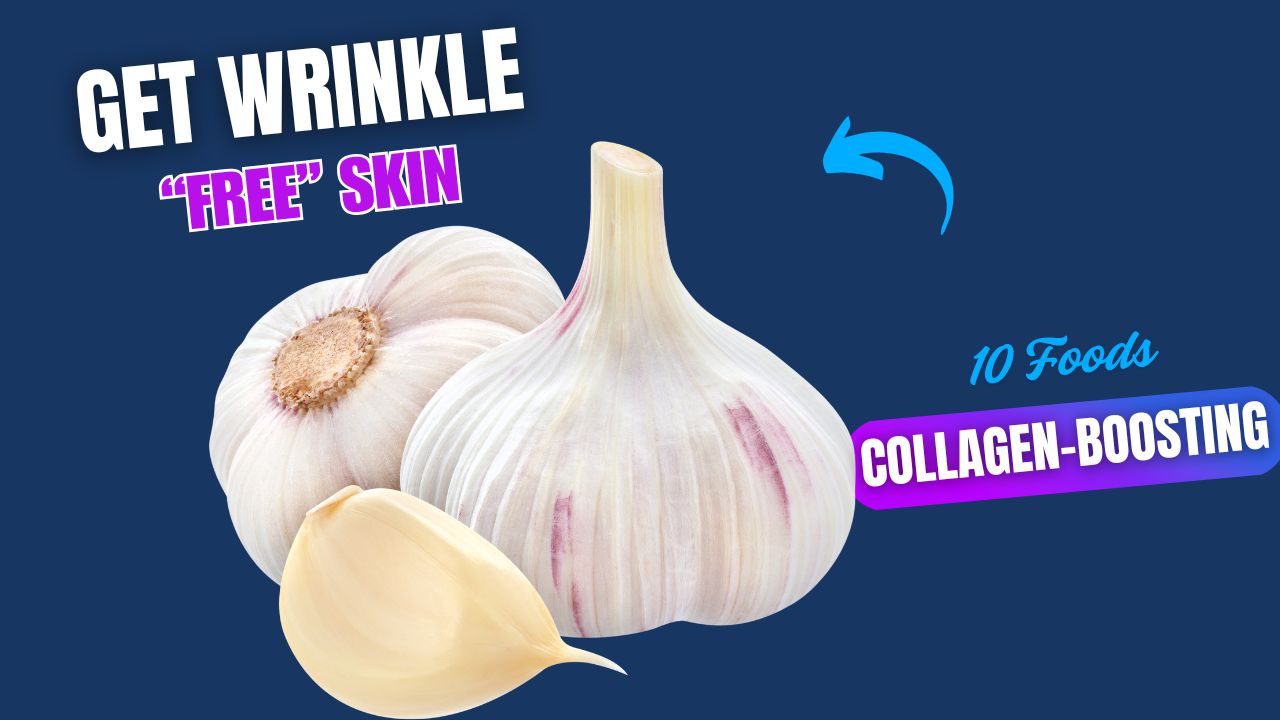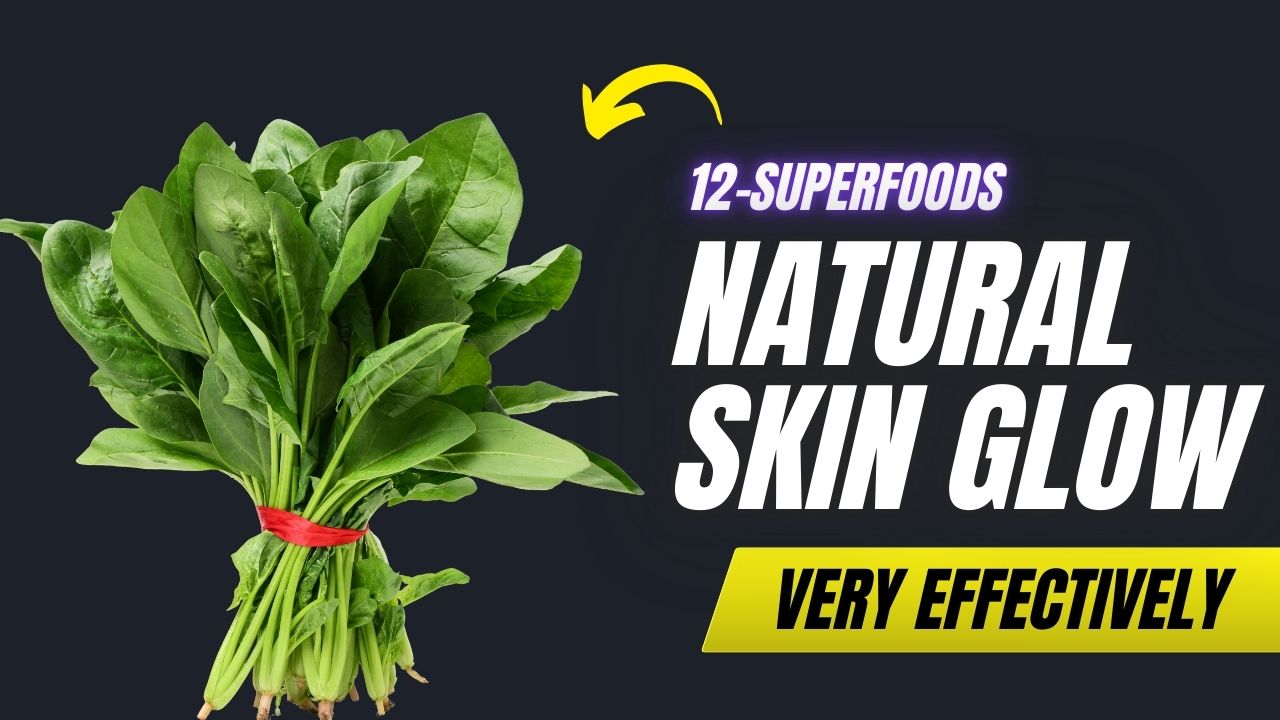Do you know that what you eat can directly influence your hormones, mood, energy, and even fertility?
Many women assume hormonal imbalances are only linked to genetics or stress, but food plays a far bigger role than most people realize.
In fact, researchers have found that certain foods can either disrupt or support hormonal balance, impacting everything from menstrual cycles to reproductive health.
If you’ve ever struggled with irregular periods, PMS, fatigue, or mood swings, it could be your body signaling hormonal imbalance.
The good news? Nature provides powerful hormone-balancing foods that can restore equilibrium and strengthen your reproductive system.
In this article, we’ll cover:
- 12 nutrient-packed foods proven to support hormone balance in women
- The best ways to eat or use them
- Who should consume them (and who should avoid)
- Buying, storage, and cooking tips
- Do’s & Don’ts for maximum benefits
- Possible side effects to watch for
Let’s dive in and explore how these foods can work as natural allies for women’s health.
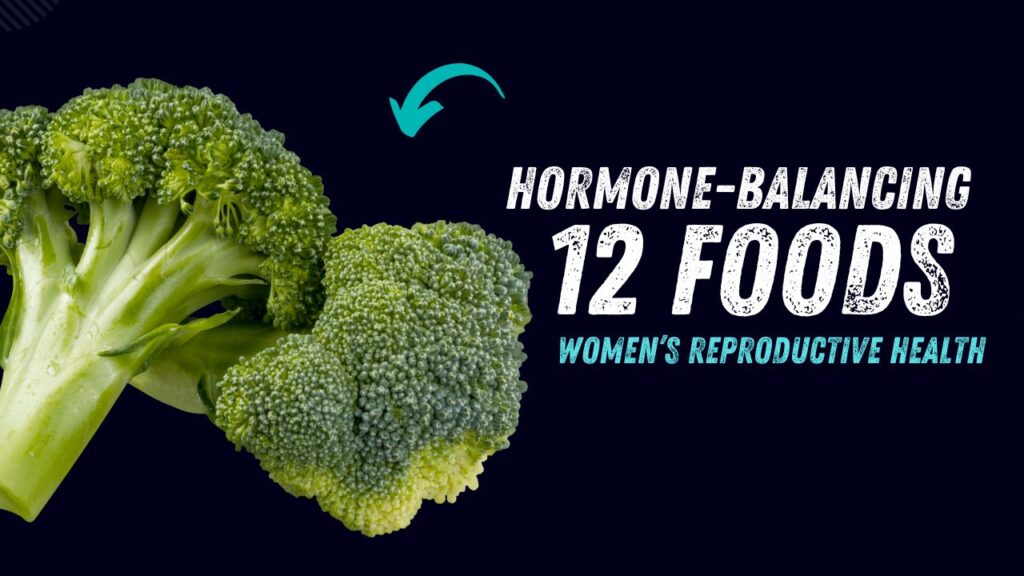
Table of Contents
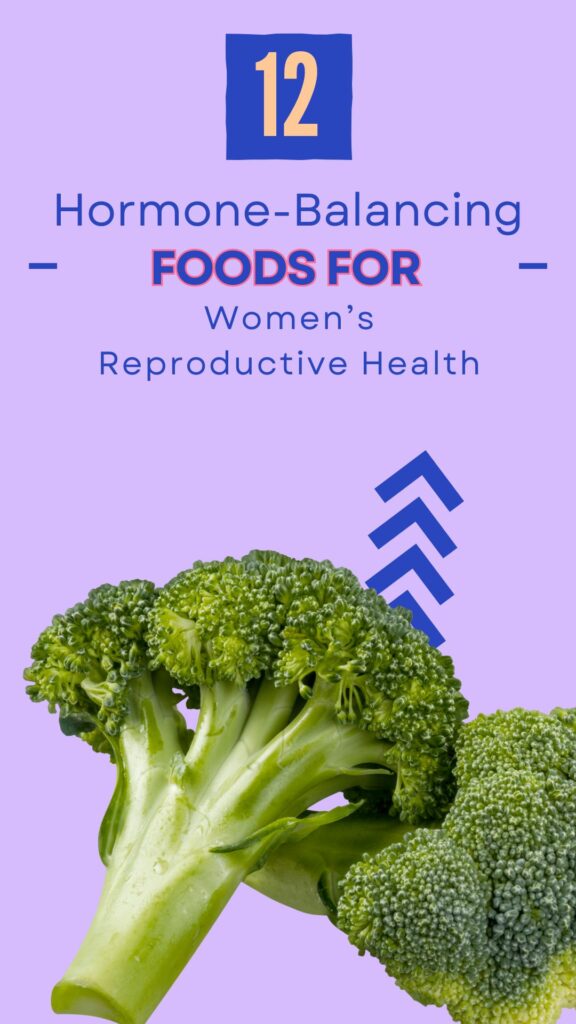
12 Hormone-Balancing Foods To Eat
1. Flaxseeds
Flaxseeds are small but mighty. They contain lignans, plant compounds that mimic estrogen, helping balance hormone levels naturally. They’re also loaded with omega-3 fatty acids, which reduce inflammation—a key factor in reproductive health.
Best Ways to Eat or Use It
- Add ground flaxseeds to smoothies, oatmeal, or yogurt.
- Use as an egg substitute in baking.
- Sprinkle over salads or soups for a nutty flavor.
Who Should Eat / Avoid
- Good for: women with irregular cycles, PCOS, or PMS.
- Avoid if: you have low blood pressure (they may lower it further) or are on blood-thinning medication.
Storage & Buying Tips
- Buy ground flaxseeds (or grind them yourself) since whole seeds often pass undigested.
- Store in an airtight container in the fridge to prevent rancidity.
Do’s & Don’ts
| ✅ Do | ❌ Don’t |
|---|---|
| Grind fresh seeds | Eat them whole |
| Store in fridge | Store in warm places |
Possible Side Effects
- Excess consumption may cause bloating or digestive discomfort.
2. Avocados
Avocados are hormone heroes thanks to their healthy fats and vitamin E. These nutrients are essential for progesterone production and overall reproductive balance.
Best Ways to Eat or Use It
- Add slices to salads and sandwiches.
- Blend into smoothies for creaminess.
- Make guacamole or avocado toast.
Who Should Eat / Avoid
- Good for: women trying to conceive, as healthy fats boost fertility.
- Avoid if: you’re allergic to latex (cross-reactivity possible).
Storage & Buying Tips
- Choose avocados that yield slightly to gentle pressure.
- Ripen at room temperature; once ripe, refrigerate to extend freshness.
Do’s & Don’ts
| ✅ Do | ❌ Don’t |
|---|---|
| Eat with tomatoes for extra antioxidants | Store cut avocados uncovered |
Possible Side Effects
- Overeating may add excess calories, leading to weight gain.
3. Broccoli
Cruciferous vegetables like broccoli are rich in indole-3-carbinol, a compound that helps the body detoxify excess estrogen. Balanced estrogen levels support menstrual and reproductive health.
Best Ways to Eat or Use It
- Lightly steam to preserve nutrients.
- Add to stir-fries or roasted veggie bowls.
- Blend into green smoothies.
Who Should Eat / Avoid
- Good for: women with estrogen dominance (heavy PMS or irregular cycles).
- Avoid if: you have thyroid issues (consume in moderation).
Storage & Buying Tips
- Choose firm, dark green florets.
- Store in a perforated bag in the fridge for up to 5 days.
Do’s & Don’ts
| ✅ Do | ❌ Don’t |
|---|---|
| Steam lightly | Overcook (destroys nutrients) |
Possible Side Effects
- May cause gas or bloating in some individuals.
4. Pumpkin Seeds
Pumpkin seeds are rich in zinc, which plays a role in progesterone production and reproductive health.
Best Ways to Eat or Use It
- Snack on roasted seeds.
- Add to granola, salads, or soups.
- Blend into nut butter.
Who Should Eat / Avoid
- Good for: women with PMS, low fertility, or hair loss.
- Avoid if: you have nut/seed allergies.
Storage & Buying Tips
- Buy unsalted and raw for maximum benefits.
- Store in a sealed jar in a cool, dry place.
Do’s & Don’ts
| ✅ Do | ❌ Don’t |
|---|---|
| Eat raw or lightly roasted | Eat salted, processed versions daily |
Possible Side Effects
- Excess may cause stomach upset.
5. Greek Yogurt
Greek yogurt provides probiotics that improve gut health, which is directly tied to hormone balance. It also supplies calcium and vitamin D—nutrients essential for reproductive health.
Best Ways to Eat or Use It
- Add fruit and nuts for a breakfast bowl.
- Use as a base for dips or sauces.
- Blend into smoothies.
Who Should Eat / Avoid
- Good for: women with digestive issues or irregular cycles.
- Avoid if: lactose intolerant or dairy-sensitive.
Storage & Buying Tips
- Buy plain, unsweetened versions.
- Keep refrigerated and consume within a week of opening.
Do’s & Don’ts
| ✅ Do | ❌ Don’t |
|---|---|
| Pair with fruit or seeds | Buy sugar-loaded versions |
Possible Side Effects
- Can cause bloating in lactose-intolerant individuals.
6. Salmon
Wild salmon is packed with omega-3 fatty acids, which reduce inflammation and regulate reproductive hormones.
Best Ways to Eat or Use It
- Grill, bake, or steam for main dishes.
- Add to salads or wraps.
- Make salmon patties or spreads.
Who Should Eat / Avoid
- Good for: women with PCOS, endometriosis, or irregular cycles.
- Avoid if: you’re allergic to fish.
Storage & Buying Tips
- Choose wild-caught over farmed for fewer toxins.
- Store in the coldest part of your fridge, consume within 2 days.
Do’s & Don’ts
| ✅ Do | ❌ Don’t |
|---|---|
| Pair with leafy greens | Overcook (destroys omega-3s) |
Possible Side Effects
- High mercury varieties (like farmed salmon) can be harmful if consumed often.
7. Berries
Blueberries, strawberries, and raspberries are antioxidant powerhouses that protect reproductive organs and support balanced hormones.
Best Ways to Eat or Use It
- Add to smoothies or yogurt.
- Use in oatmeal, pancakes, or desserts.
- Snack fresh or frozen.
Who Should Eat / Avoid
- Good for: all women, especially during PMS.
- Avoid if: allergic to berries.
Storage & Buying Tips
- Store unwashed in the fridge. Wash only before eating.
Do’s & Don’ts
| ✅ Do | ❌ Don’t |
|---|---|
| Eat fresh or frozen | Store washed berries too long |
Possible Side Effects
- Overeating may cause stomach upset due to fiber.
8. Walnuts
Walnuts contain plant-based omega-3s, magnesium, and protein—all important for hormone production.
Best Ways to Eat or Use It
- Snack raw or roasted.
- Add to salads, cereals, or baked goods.
- Blend into nut butter.
Who Should Eat / Avoid
- Good for: women seeking improved fertility and mood balance.
- Avoid if: you have nut allergies.
Storage & Buying Tips
- Store in airtight containers in the fridge.
Do’s & Don’ts
| ✅ Do | ❌ Don’t |
|---|---|
| Eat raw for maximum nutrition | Store in warm conditions |
Possible Side Effects
- Overeating may lead to weight gain.
9. Eggs
Eggs are rich in choline and vitamin B, which support hormone production and reproductive health.
Best Ways to Eat or Use It
- Boiled, scrambled, or poached.
- Add to salads or sandwiches.
- Use in baking or as a protein-rich snack.
Who Should Eat / Avoid
- Good for: women needing protein and fertility support.
- Avoid if: allergic to eggs or have high cholesterol (eat in moderation).
Storage & Buying Tips
- Store in the fridge, not on the counter.
- Choose organic, free-range if possible.
Do’s & Don’ts
| ✅ Do | ❌ Don’t |
|---|---|
| Cook with minimal oil | Over-fry with unhealthy oils |
Possible Side Effects
- May cause allergies or digestive discomfort in sensitive individuals.
10. Spinach
Spinach provides iron and magnesium, crucial for women with heavy periods or fatigue from hormonal imbalances.
Best Ways to Eat or Use It
- Add raw to salads and smoothies.
- Steam lightly as a side dish.
- Include in soups and curries.
Who Should Eat / Avoid
- Good for: women with anemia or PMS fatigue.
- Avoid if: prone to kidney stones (oxalates).
Storage & Buying Tips
- Store unwashed spinach in the fridge wrapped in paper towels.
Do’s & Don’ts
| ✅ Do | ❌ Don’t |
|---|---|
| Eat raw or lightly cooked | Overcook (destroys vitamins) |
Possible Side Effects
- Excess may cause kidney stone formation.
11. Sweet Potatoes
Sweet potatoes contain beta-carotene, a nutrient linked to reproductive health and balanced estrogen.
Best Ways to Eat or Use It
- Roast, mash, or bake.
- Use in soups, stews, or fries.
- Blend into smoothies for natural sweetness.
Who Should Eat / Avoid
- Good for: women with PMS cravings or low fertility.
- Avoid if: diabetic (consume in moderation).
Storage & Buying Tips
- Store in a cool, dark, ventilated area (not in fridge).
Do’s & Don’ts
| ✅ Do | ❌ Don’t |
|---|---|
| Eat baked or roasted | Store in fridge |
Possible Side Effects
- Excess may cause blood sugar spikes in some women.
12. Dark Chocolate (70% or higher)
Yes, chocolate can help! Dark chocolate provides magnesium and antioxidants that reduce stress and support reproductive hormones.
Best Ways to Eat or Use It
- Enjoy as a snack (a square or two).
- Add to smoothies or oatmeal.
- Melt into sauces or desserts.
Who Should Eat / Avoid
- Good for: women with PMS, mood swings, or stress.
- Avoid if: sensitive to caffeine.
Storage & Buying Tips
- Store in a cool, dry place away from sunlight.
Do’s & Don’ts
| ✅ Do | ❌ Don’t |
|---|---|
| Choose 70% or higher cocoa | Eat milk chocolate for benefits |
Possible Side Effects
- Overeating may cause jitters or weight gain.
Conclusion
Hormonal balance is not just about medication or lifestyle—it begins on your plate. These 12 foods—ranging from flaxseeds and avocados to dark chocolate—are rich in nutrients that support women’s reproductive health, reduce PMS symptoms, boost fertility, and improve overall well-being.
Incorporating them into daily meals can help restore balance naturally. Start small: sprinkle flaxseeds in your smoothie, snack on pumpkin seeds, or enjoy a piece of dark chocolate guilt-free.
Your hormones, mood, and energy levels will thank you.
Now it’s your turn—Which of these hormone-balancing foods will you add to your diet this week? Share your favorite recipe or idea in the comments!
Frequently Asked Questions (FAQs)
Can foods really balance hormones naturally?
Yes. Certain foods such as flaxseeds, cruciferous vegetables, and salmon contain compounds that support estrogen and progesterone balance. While diet alone may not cure severe imbalances, it can significantly improve hormonal health.
How long does it take to see results from eating hormone-balancing foods?
It varies by individual, but most women notice improvements in energy, mood, and menstrual regularity within 4–8 weeks of consistently eating a balanced diet.
Are these foods safe for women with PCOS?
Absolutely. Foods like salmon, flaxseeds, and leafy greens are especially beneficial for women with PCOS as they reduce inflammation and support insulin sensitivity.
Can pregnant women eat these foods?
Yes, but with moderation. Avocados, spinach, and sweet potatoes are excellent during pregnancy, while high-mercury fish and excessive flaxseed intake should be avoided.
Do I need to eat all 12 foods daily?
No. The key is variety. Aim to include at least 3–4 hormone-supporting foods daily, rotating them throughout the week.
Can men benefit from these hormone-balancing foods?
Yes. While this list is tailored for women, many foods (like walnuts, berries, and salmon) also support men’s hormonal and reproductive health.
Is it possible to overeat hormone-balancing foods?
Yes. Even healthy foods can cause side effects if consumed in excess. For example, too many flaxseeds can cause digestive issues, and too much dark chocolate may lead to caffeine overload.
Should I avoid processed foods if I want balanced hormones?
Yes. Processed foods, refined sugars, and trans fats can disrupt hormonal balance. Natural, whole foods are always the better choice.
Do supplements work as well as these foods?
Supplements can help if you’re deficient, but whole foods provide synergistic nutrients, fiber, and antioxidants that supplements alone cannot replace.
Can these foods replace medical treatment for hormonal disorders?
No. They should be seen as a supportive lifestyle approach, not a replacement for medical treatment. Always consult your doctor for serious hormonal issues.
